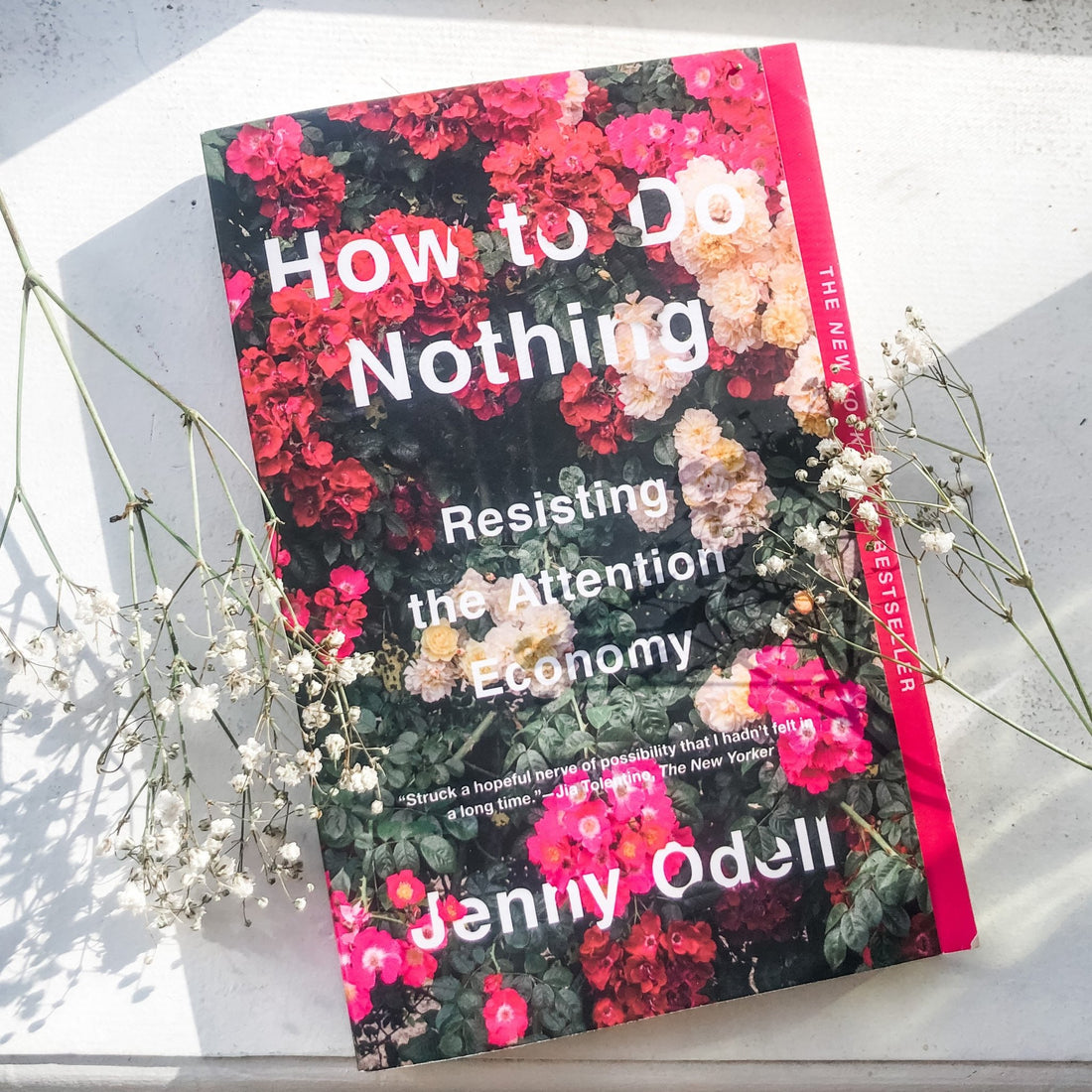
How to Do Nothing by Jenny Odell
Share
If you know me personally, you know that I am a workaholic. I have always been this way: involved in more activities than is realistic and desperate to excel simultaneously in all of them, which culminates in an enormous meltdown every 3 to 6 months when the pressure of keeping every plate spinning finally crushes my spirit and I lose my ability to do anything at all.
This has always been the part that scares me most: when I stop doing anything. From a young age, I bought in 100 percent to the narrative of success and hustle and drive and discipline; the more I do, I figured, the more successful I'll be. In the last handful of years, I have begun to recognize the toxicity of this mentality, how directly tied it is to ageism and capitalism and exceptionalism and individualism; how the constant stress I feel is built into the systems that are designed to make us workers instead of people.
It is one thing, however, to recognize something, and a completely different thing to unlearn it. I am somewhere in between: I can see all the systems at play and the way they wear down our humanity; at the same time, I still hold myself to the standards of those systems. Unlearning any -ism is a lifelong project, so it makes sense that I can feel that dichotomy. As I have been trying to sit with that, this book has been a monumental guidepost for me — 204 pages that act at once as a history, a roadmap, a salve, and a companion.
The book's title reaches out to us workaholics who have never known how to do nothing, who fear it, and who pad our lives with busy-ness for reasons we can't quite name. But at its heart, it's not really about doing nothing. It's about becoming aware, taking back our attention, and diverting it away from the structures that harm us. How do we locate our attention and then reinvest it in the places that invigorate us, bring us together, a validate the fact that we are alive? How do we befriend crows and learn the names of trees? How do we wander away from the pervasive and unrelenting "growth mindset" and get lost in time as we study the moss on the ground? How do we care for the earth, and for each other?
Much of what this book espouses seems counterintuitive at first blush, but on closer inspection the concepts are actually the most intuitive things in the world. The book examines the placelessness of social media, the"impossibility of retreat," the responsibility we have to our neighbors, and the essentiality of parks. It acknowledges the part that privilege plays in divesting attention. It bemoans the inescapability of work. It contextualizes all the fear and stress and dread that I — and likely you — have always experienced, and it offers another route.
This book is, in my opinion, required reading. It's part history, part self help, part activist manifesto...I mean, chef's kiss. It's definitely one of the most important books I've read in a long time, and it's one I'll likely return to again and again as I continue my lifelong journey of unlearning my own toxic mindsets. I am grateful to this book and to its author, Jenny Odell: Thank you for putting this important work into the world.
Loved this book and want more like it? Check out Braiding Sweetgrass by Robin Wall Kimmerer and The Queer Art of Failure by Jack/Judith Halberstam.

15 comments
discount non prescription generic lasix
What good interlocutors :)
boys sex video
What necessary words… super, remarkable idea
gay sex vedio
I think, that you have misled.
boys sex videos